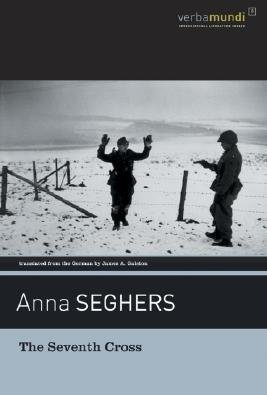Search
Search results
Awix (3310 KP) rated Transit (2018) in Movies
Aug 16, 2019 (Updated Aug 16, 2019)
Anna Seghers' novel of life in France following the German invasion of 1940 updates to the present day with disturbing ease. There is much talk of 'occupation' and 'cleansing' but the director wisely keeps things unspecified as Franz Robowski's character steals a dead man's identity in an attempt to escape Europe, only to find emotional entanglements pose almost as great a problem as international borders.
Understated, with various echoes of other films - you can see why it's being compared to Casablanca, but this is a much heavier and more intense movie. Still quite engrossing to watch, mainly because of the performances. There are also shades of Kafka - you are only allowed to stay in one hotel if you can prove you don't want to stay there - and also Antonioni's The Passenger, although the existentialism of the film's theme is kept muted. Concentrates on telling a story rather than putting over a message, and as a result is effective and sometimes moving.
Understated, with various echoes of other films - you can see why it's being compared to Casablanca, but this is a much heavier and more intense movie. Still quite engrossing to watch, mainly because of the performances. There are also shades of Kafka - you are only allowed to stay in one hotel if you can prove you don't want to stay there - and also Antonioni's The Passenger, although the existentialism of the film's theme is kept muted. Concentrates on telling a story rather than putting over a message, and as a result is effective and sometimes moving.
ClareR (5561 KP) rated The Seventh Cross in Books
Aug 22, 2018
This remains a lesson for us all
I was keen to read this translation, as I had originally read it during my German degree, in German. In fact, this book was a central part of my dissertation and was one of three Anna Seghers novels. They were all set in the National Socialist period of 1933-1945 (or thereabouts). I remember the German version being a very dense, challenging book - but that’s not necessarily a bad thing for me! I like a book that makes me think, and there’s plenty of food for thought here.
This story is jam packed with characters from all sides of the German story: National Socialists, Communists, the SS and the ordinary working German,
Georg Heisler (I’m using the German derivative of his name; I have no idea why his name was anglicised to ‘George’ whilst other characters kept their German names) escapes from a fictitious concentration camp (Westhofen) along with six other men. This is pre World War II, this is what the National Socialists did to their own countrymen and any dissent.
The story follows the recapture of the other six, Georg’s escape and all those who help him. Persecution on this scale is still happening today, and whether or not it is happening, we should still read about it and remember, in order to ensure that it doesn’t happen again.
I’ve touched on the language and style. It’s not easy. It wasn’t easy to read and understand in German, and it can be hard going in English. It seems quite detached from emotion, and I think this is a deliberate device. If we look at the historical context, people clearly disengaged froma large part of what was happening around them. One of the SS soldiers refers to “Sarah’s”; the men in the concentration camp are there being starved and tortured due to their political ideology, and people live within hearing distance, hear the shouting, crying and the pain of the prisoners and do nothing: an embarrassed shrug, a closing of their ears.
This is the part that we should never forget: inaction, and the necessity to stop these things in their tracks at the beginning, rather than before it’s too late.
Georg has his helpers, those who risk their lives to save his (just as Seghers and her husband, both communist Jews had their helpers). The startling thing to me about this novel, is the normalcy: the countryside stays the same, the relationships, work. All seemed normal in the face of such evil. This is a novel to remember and learn from. It has as many lessons for us today as it did seventy years ago,
This story is jam packed with characters from all sides of the German story: National Socialists, Communists, the SS and the ordinary working German,
Georg Heisler (I’m using the German derivative of his name; I have no idea why his name was anglicised to ‘George’ whilst other characters kept their German names) escapes from a fictitious concentration camp (Westhofen) along with six other men. This is pre World War II, this is what the National Socialists did to their own countrymen and any dissent.
The story follows the recapture of the other six, Georg’s escape and all those who help him. Persecution on this scale is still happening today, and whether or not it is happening, we should still read about it and remember, in order to ensure that it doesn’t happen again.
I’ve touched on the language and style. It’s not easy. It wasn’t easy to read and understand in German, and it can be hard going in English. It seems quite detached from emotion, and I think this is a deliberate device. If we look at the historical context, people clearly disengaged froma large part of what was happening around them. One of the SS soldiers refers to “Sarah’s”; the men in the concentration camp are there being starved and tortured due to their political ideology, and people live within hearing distance, hear the shouting, crying and the pain of the prisoners and do nothing: an embarrassed shrug, a closing of their ears.
This is the part that we should never forget: inaction, and the necessity to stop these things in their tracks at the beginning, rather than before it’s too late.
Georg has his helpers, those who risk their lives to save his (just as Seghers and her husband, both communist Jews had their helpers). The startling thing to me about this novel, is the normalcy: the countryside stays the same, the relationships, work. All seemed normal in the face of such evil. This is a novel to remember and learn from. It has as many lessons for us today as it did seventy years ago,

